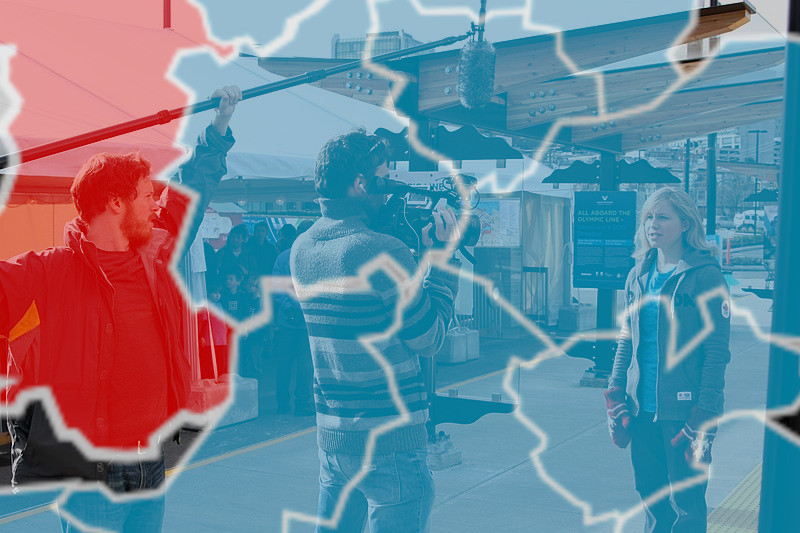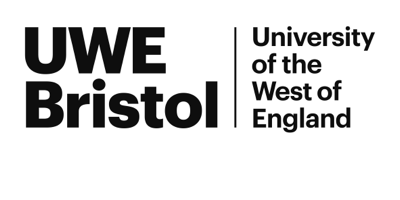A Three-Day International Interdisciplinary Conference at King’s College London
19-21 June 2023
Co-organisers: Professor Paul McDonald, Kings College London; Professor Andrew Spicer, University of the West of England Bristol
Deadline for Proposals: 15 January 2023
We invite proposals for papers, panels, or roundtables conceptualising, defining, analysing, discussing, or mapping relationships between media industries and locality. Proposals are invited from across the full breadth of media industries research. We hope the conference can provide an inclusive inter-disciplinary meeting ground, so welcome proposals from all disciplinary traditions relevant to the topic.
The importance of locality to the media industries has been widely debated through a range of perspectives. Harvard economist Michael Porter claimed that ‘clusters’ – which he defined as ‘geographical agglomerations of firms that collaborate and compete with each other’ – provide ‘enduring competitive advantages in a global economy’ through local knowledges and relationships ‘that distant rivals cannot match’ (1998: 78). Studies of clustering activity in media industries have focused on ‘a specialized form of clusters designed to produce mediated content’ (original emphasis, Picard 2008: 4), recognizing how these take form in both planned and organic ways, but also the different types of cluster that emerge from such developments (Komorowski 2016 and 2017).
Porter’s emphasis on the economic significance of location has been challenged by other studies that focus on the significance of historical factors and the importance of long-term cultural traditions. In his seminal The Cultural Economy of Cities (2000), Allen J. Scott argues that place has a particular significance for creative production because of the ways in which locality and culture are intertwined. Places, he argues, leave ‘deep traces on the form and cognitive meanings’ of creative products emerging from ‘localized systems of industrial activity’. These ‘symbolic and sentimental assets’ derive from the ‘distinctive historical associations and landmarks’ that make each particular place unique (2000: 3).
Discussing how the concentration of film and television production in Louisiana formed ‘Hollywood South’, Vicki Mayer (2017: 3) focused on the ways in which ‘life in a film economy shapes and is shaped by its location’. A focus on locality can therefore ground our understanding of how media industries are actually inhabited and lived, but also how media workers contribute to the formation of locations. Analyses of cities as ‘sites of passage’ (de Valck 2007: 9) connected through the ‘film festival circuit’ (Loist 2007), or of global television marketplaces (Havens 2006; Choi 2021), illuminate how industries temporarily congregate to exchange and circulate media in and through specific locations. Other studies have investigated the representational dimensions of locality in media industries (e.g., Brunsdon 2007; Young 2022): the importance of locations to narrative, iconography, and characterisation (places as characters) and the ways in which these contribute to imagining and imaging a sense of regional identity and consciousness. There has been significant work on where media production takes place (e.g., Ganti 2012; McNutt 2021) as well as the specialized facilities in which media production is performed (e.g., Goldsmith and O’Regan 2005), the operational and emblematic role of media buildings (Evens 2022), of local place-making activities including media tourism and ‘places of the imagination’ (Reijnders 2011), and the ways in which places accrete symbolic images (‘brands’) for international consumption.
Analyses of ‘the world media cities network’ (Krätke 2003), ‘global media cities’ (Hoyler and Watson 2012), ‘film cities’ (O’Regan 2018) and ‘media capitals’ (Curtin 2003) highlight the importance of global cities as loci for media creativity and flows. At the same time, attention has also been given to concentrations of media industries in marginalised centres (e.g., Haynes 2007 on Lagos) and regions (e.g., Szczepanik 2021 on Central and Eastern Europe). While perennial tensions between ‘centre’ and ‘periphery’ have a long history, these have become more urgent and pressing over the last decade. In many countries this has an explicitly political dimension with governments directing – or encouraging through regulatory systems – the deployment of increased resources into regional screen production in an attempt to strengthen local economies and identities thereby encouraging more diverse and sustainable screen industries that support a range of voices. The importance of locality and spatial plurality has been accentuated in an era of accelerating internationalisation of the media industries in which Public Service Media (PSM) are losing audiences to satellite channels or streaming platforms that operate to a global commercial logic. However, the streamers’ business models are themselves changing and, as Ramon Lobato argues (2019), this new logic does not entirely displace or supersede the older logics of analogue broadcasting but introduces new layers of spatial complexity that need to be investigated and analysed. This invites a broader question: why, how, and where are networked forms of media reconfiguring the spatial organisation of media industries?
These perspectives variously foreground the importance of linkages between media industries and locality. Yet the Covid pandemic disrupted those links. Remote and hybrid working became habituated across all areas of professional life. In the media sector specifically, impacts materialized with the movement of media conventions and festivals online, threats to the future of location-specific entertainment such as music venues, and greater use of commercial livestreaming as an outlet for large-scale media events. Cumulatively, with these and other developments, we might therefore ask: to what extent is locality retaining importance for the media industries?
Proposals can be for single research papers, or pre-constituted panels and roundtables. Topics to be addressed include but are not limited to the following:
• Locality in media production networks
• Locality in media and communication infrastructures
• Spaces and places as media production locations
• Media companies and attachments to place
• Civic/social role of media companies
• Media companies and urban renewal
• Media and the built environment
• Cities as media distribution hubs
• Environmental impacts of media on places
• Media ‘clusters’/‘hubs’
• ‘Media Cities’
• Media industry events, e.g., festivals, conventions
• Spaces and places of media work
• Locality and the production and circulation of diasporic media
• Media and urban or rural/regional economies
• Media and urban or rural/regional policy
• Media tourism
• Media industries and place branding
Proposal guidelines
Proposals are welcomed in three categories and should be submitted through the following links:
Format: solo or co-presented research paper lasting no more than 20mins.
Format: 90mins panel of 3 x 20mins OR 4 x 15mins thematically linked solo or co-presented research papers followed by questions.
Format: 90mins interactive forum led by a chair bringing together 4 to 6 participants (including the chair as a participant if speaking as well as chairing) to offer short (up to 6 minute) position statements or interventions designed to trigger discussions around a central theme, issue, or problem. As such, a roundtable does not involve the presentation of formal research papers but rather is designed to create a forum for the participants and audience to engage in a shared discussion. The format is flexible and can be adapted to allow members of the roundtable to introduce exercises or other activities where appropriate.
Delegates can make TWO contributions to the conference but only ONE in any category, i.e., presenting an open call paper and participating in a roundtable will be permitted but presenting two open call papers will not be. Chairing a panel or roundtable will NOT count as one of those contributions.
Papers (either open call or as part of a pre-constituted panel) maybe presented individually or by a pair of co-presenters.
When submitting a proposal, each presenter/co-presenter/participant is required to provide:
• name
• institutional affiliation (if any)
• contact e-mail address
• short professional biography (max. 100 words)
In addition, different proposal categories require the following:
1) Open Call Papers
• title
• abstract of no more than 400 words
• 3-5 keywords
• 3-5 sources relevant to the paper
2) Pre-constituted Panels
• nominated chair (either one of the presenters or another delegate)
• panel rationale of no more than 400 words
• 3-5 key words
• individual proposals (presenter/co-presenter details, title, abstract, keywords, sources) for 3 x 20mins OR 4 x 15mins research papers
3) Pre-constituted Roundtables
• nominated chair (either one of the presenters or another delegate)
• rationale of no more than 400 words
• 3-5 key words
• details for each participant accompanied by a statement of no more than 100 words outlining a participant’s intended contribution



